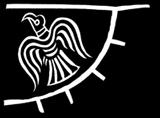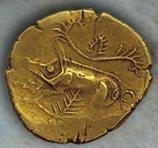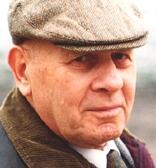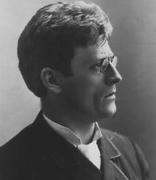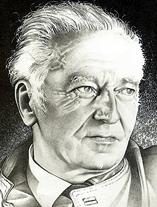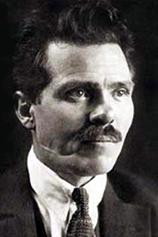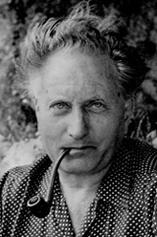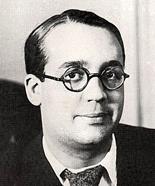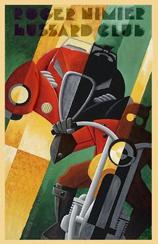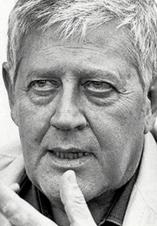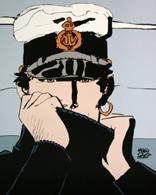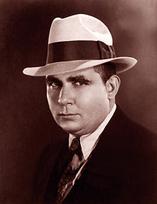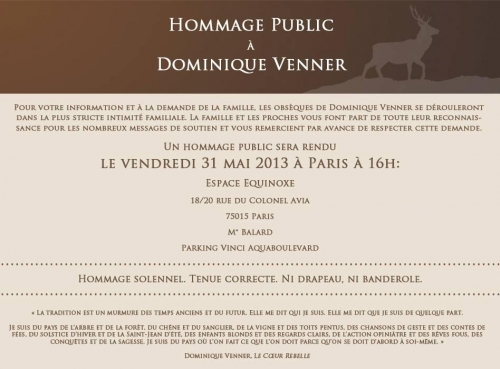13/05/2014
Dominique Venner : Souvenirs...
Dominique Venner / Souvenirs - Part.01 & 02
A suivre (une douzaine de vidéos, si j’ai bien compris) au cours des jours à venir, via le site de TV Libertés (à l’origine du projet) ou sa chaîne Youtube.
Un grand merci à Frédérik pour les liens !
-------------------------------------------------
http://www.tvlibertes.com/
https://www.facebook.com/tvlibertes
https://twitter.com/tvlofficiel
-------------------------------------------------------------------
Mise à jour (15 mai) / Part.03 & 04
Mise à jour (21 mai) / Part.05, 06 & 07
Suite(s)...
18:18 Publié dans Blog, Entretiens, In memoriam | Lien permanent | Commentaires (12) | Tags : dominique venner, itinéraire, souvenirs, entretiens filmés, in memoriam
28/03/2014
Il y a 60 ans...
1954 - 2014…
Il y a 60 ans, le 22 juillet 1954, prenait fin la guerre d’Indochine.
Une guerre souvent appelée « la guerre oubliée » et un anniversaire qui le sera très certainement encore une fois, (oublié)… en cette/ces année(s) de « commémoration » du centenaire de la première guerre mondiale.
En vertu de quoi, nous vous proposerons tout au long de l’année – et via notre Bouquinorium – un grand nombre d’ouvrages relatifs à ladite guerre d’Indochine, mais également à toutes les autres « guerres oubliées » (Algérie, volontaires français en Corée, etc.)…
Devoir de mémoire…
Si vous êtes intéressé(e)s…
Il vous suffit de vous rendre ici > Bouquinorium
Et de cliquer sur « Indochine et Algérie », dans la colonne de droite.
Sans oublier, bien sûr, le chapitre Histoire de notre catalogue « Livres ».
> http://bouquinorium.hautetfort.com/catalogue-livres-telechargement-pdf/

Source photo > lavieautrement.blogspot.fr
09:59 Publié dans Blog, Boutique, Guerriers, Histoire de France, In memoriam, Livres - Littérature | Lien permanent | Commentaires (0) | Tags : indochine, guerre d'indochine, 60 ans, diên biên phu
11/11/2013
Tout simplement des hommes...
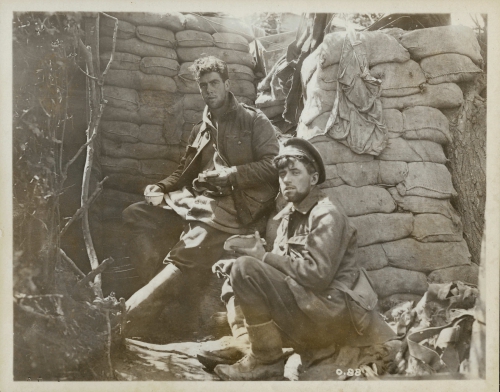
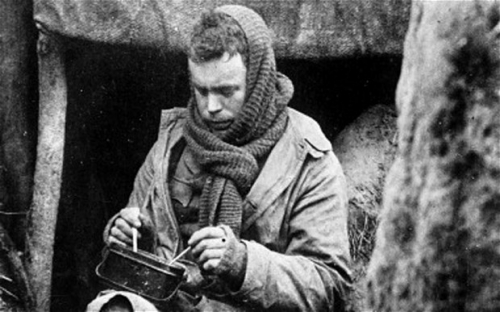
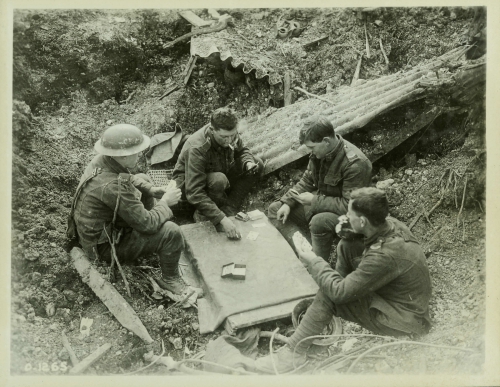
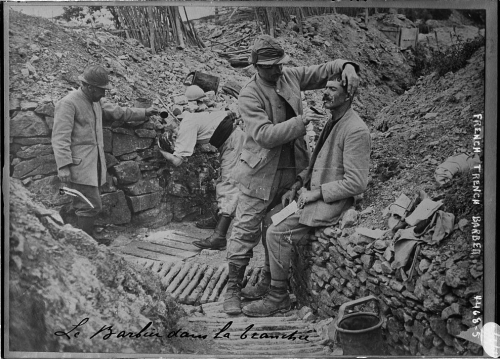

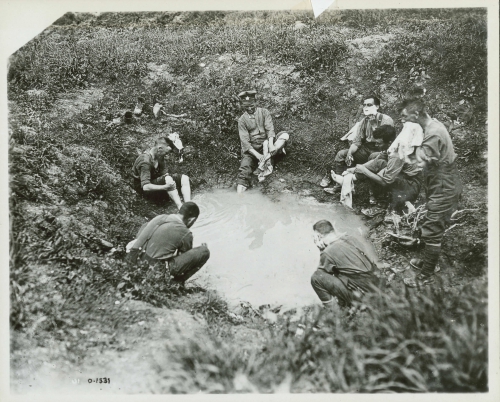
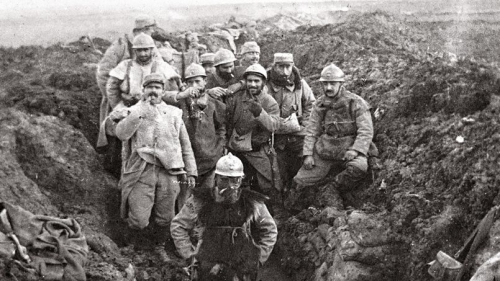
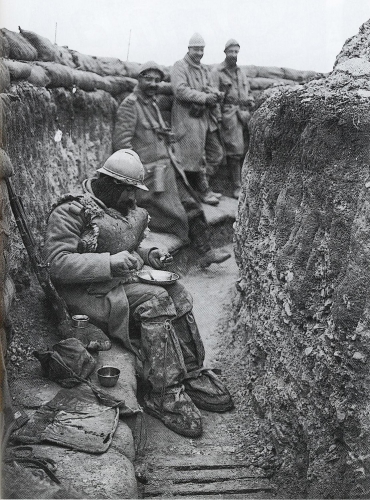
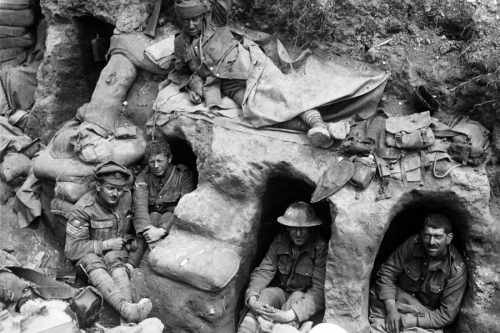
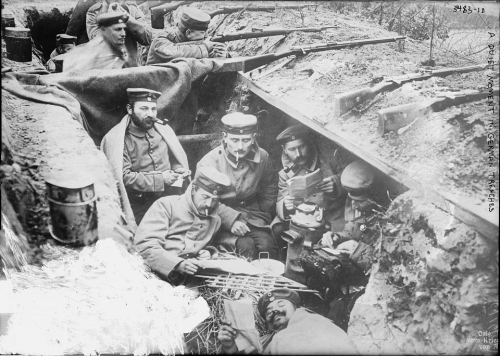
07:45 Publié dans Blog, Guerriers, Histoire de France, Histoire européenne, In memoriam | Lien permanent | Commentaires (0) | Tags : première guerre mondiale, ww1, poilus, 11 novembre
10/11/2013
La butte rouge
Sur c'te butt'là y'avait pas d'gigolettes
Pas de marlous ni de beaux muscadins.
Ah ! C'était loin du Moulin d'la Galette,
Et de Panam' qu'est le roi des pat'lins.
C'qu'elle en a bu du beau sang cette terre,
Sang d'ouvriers et sang de paysans,
Car les bandits qui sont cause des guerres
N'en meurent jamais, on n'tue qu'les innocents !
La Butt' Rouge, c'est son nom,
L'baptême s'fit un matin,
Où tous ceux qui montaient roulaient dans le ravin.
Aujourd'hui y'a des vignes, il y pousse du raisin.
Qui boira ce vin là, boira l'sang des copains.
Sur c'te butt'là on n'y f'sait pas la noce
Comme à Montmartr' où l'champagne coul' à flots;
Mais les pauvr's gars qu'avaient laissé des gosses
Y f'saient entendre de terribles sanglots !
C'qu'elle en a bu des larmes cette terre,
Larm's d'ouvriers, larmes de paysans,
Car les bandits qui sont cause des guerres
Ne pleurent jamais, car ce sont des tyrans !
La Butt' Rouge, c'est son nom,
L'baptême s'fit un matin,
Où tous ceux qui montaient roulaient dans le ravin.
Aujourd'hui y'a des vignes, il y pousse du raisin.
Qui boit de ce vin là, boit les larmes des copains
Sur c'te butt'là, on y r'fait des vendanges,
On y entend des cris et des chansons ;
Filles et gars doucement y échangent
Des mots d'amour qui donnent le frisson.
Peuvent-ils songer, dans leurs folles étreintes,
Qu'à cet endroit où s'échangent leurs baisers,
J'ai entendu la nuit monter des plaintes
Et j'y ai vu des gars au crâne brisé !
La Butt' Rouge, c'est son nom,
L'baptême s'fit un matin,
Où tous ceux qui montaient roulaient dans le ravin.
Aujourd'hui y'a des vignes, il y pousse du raisin.
Mais moi j'y vois des croix portant l'nom des copains !
« La butte rouge »
Ecrite par Gaston Mardochée Brunswick dit Montéhus, en 1923.
10:16 Publié dans Blog, Guerriers, Histoire de France, In memoriam, Musique, Poésie, Terroir | Lien permanent | Commentaires (0) | Tags : la butte rouge, montéhus, docteur merlin, poilus, première guerre mondiale
05/11/2013
Sulfureux et réac'...
Les "grands commis d'État" n'ont pas salué Gérard de Villiers.
Les obsèques de l'écrivain Gérard de Villiers, mort jeudi à 83 ans, auront lieu jeudi 7 novembre à 14h30 à l'église Saint-Honoré d'Eylau, dans le seizième arrondissement de Paris, a annoncé samedi son avocat maître Éric Morain.
L'inhumation aura lieu au cimetière de Passy.
Controversé en raison de son côté sulfureux et "réac" revendiqué, le mercenaire du polar hard n'a pas reçu les hommages posthumes de la ministre de la Culture, Aurélie Filippetti.
"C'est dommage et regrettable" que le ministère n'ait pas réagi, "mais c'était un homme qui déplaisait aux grands commis d'État", a tancé Christine de Villiers, dernière épouse de l'auteur. "Que même à son décès le gouvernement ne souhaite pas le reconnaître, cela ne me surprend pas, malgré son immense popularité jusqu'aux États-Unis et ses millions de livres vendus", a-t-elle ajouté.
"Au refus de réaction du ministère, le prince Malko Linge (héros de la saga) répondit par un sourire tout aussi méprisant", a quant à lui tweeté Éric Morain.
Le Point.fr (02/11/2013 à 16:10), source AFP.

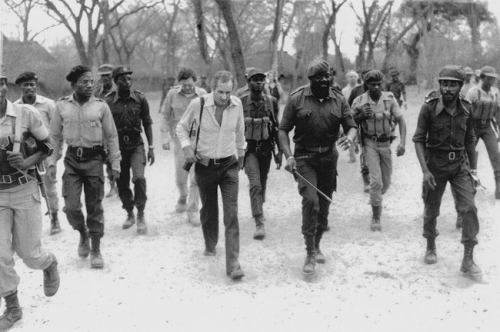
De Villiers with Jonas Savimbi, the leader of the rebel group Unita,
in Angola in 1982. (N.Y Times)
11:39 Publié dans Blog, In memoriam, Les ignobles, Livres - Littérature, Monde en perdition | Lien permanent | Commentaires (0)
04/11/2013
The French elite pretend not to read him...
En hommage à ce monument de la "pulp littérature" et ce personnage haut en couleurs qu'était Gérard De Villiers (décédé jeudi dernier, 31 octobre 2013), nous reproduisons ici l'article que lui avait consacré le New York Times, en date du 30 janvier de cette même année.
The spy novelist who knows too much
Last June, a pulp-fiction thriller was published in Paris under the title “Le Chemin de Damas.” Its lurid green-and-black cover featured a busty woman clutching a pistol, and its plot included the requisite car chases, explosions and sexual conquests. Unlike most paperbacks, though, this one attracted the attention of intelligence officers and diplomats on three continents. Set in the midst of Syria’s civil war, the book offered vivid character sketches of that country’s embattled ruler, Bashar al-Assad, and his brother Maher, along with several little-known lieutenants and allies. It detailed a botched coup attempt secretly supported by the American and Israeli intelligence agencies. And most striking of all, it described an attack on one of the Syrian regime’s command centers, near the presidential palace in Damascus, a month before an attack in the same place killed several of the regime’s top figures. “It was prophetic,” I was told by one veteran Middle East analyst who knows Syria well and preferred to remain nameless. “It really gave you a sense of the atmosphere inside the regime, of the way these people operate, in a way I hadn’t seen before.”
The book was the latest by Gérard de Villiers, an 83-year-old Frenchman who has been turning out the S.A.S. espionage series at the rate of four or five books a year for nearly 50 years. The books are strange hybrids: top-selling pulp-fiction vehicles that also serve as intelligence drop boxes for spy agencies around the world. De Villiers has spent most of his life cultivating spies and diplomats, who seem to enjoy seeing themselves and their secrets transfigured into pop fiction (with their own names carefully disguised), and his books regularly contain information about terror plots, espionage and wars that has never appeared elsewhere. Other pop novelists, like John le Carré and Tom Clancy, may flavor their work with a few real-world scenarios and some spy lingo, but de Villiers’s books are ahead of the news and sometimes even ahead of events themselves. Nearly a year ago he published a novel about the threat of Islamist groups in post-revolutionary Libya that focused on jihadis in Benghazi and on the role of the C.I.A. in fighting them. The novel, “Les Fous de Benghazi,” came out six months before the death of the American ambassador, J. Christopher Stevens, and included descriptions of the C.I.A. command center in Benghazi (a closely held secret at that time), which was to become central in the controversy over Stevens’s death. Other de Villiers books have included even more striking auguries. In 1980, he wrote a novel in which militant Islamists murder the Egyptian president, Anwar Sadat, a year before the actual assassination took place. When I asked him about it, de Villiers responded with a Gallic shrug. “The Israelis knew it was going to happen,” he said, “and did nothing.”
Though he is almost unknown in the United States, de Villiers’s publishers estimate that the S.A.S. series has sold about 100 million copies worldwide, which would make it one of the top-selling series in history, on a par with Ian Fleming’s James Bond books. S.A.S. may be the longest-running fiction series ever written by a single author. The first book, “S.A.S. in Istanbul,” appeared in March 1965; de Villiers is now working on No. 197.
For all their geopolitical acumen, de Villiers’s books tend to provoke smirks from the French literati. (“Sorry, monsieur, we do not carry that sort of thing here,” I was told by the manager at one upscale Paris bookstore.) It’s not hard to see why. Randomly flip open any S.A.S. and there’s a good chance you’ll find Malko (he is Son Altesse Sérénissime, or His Serene Highness), the aristocratic spy-hero with a penchant for sodomy, in very explicit flagrante. In one recent novel, he meets a Saudi princess (based on a real person who made Beirut her sexual playground) who is both a dominatrix and a nymphomaniac; their first sexual encounter begins with her watching gay porn until Malko distracts her with a medley of acrobatic sex positions. The sex lives of the villains receive almost equal time. Brutal rapes are described in excruciating physiological detail. In another recent novel, the girlfriend of a notorious Syrian general is submitting to his Viagra-fueled brutality when she recalls that this is the man who has terrorized the people of Lebanon for years. “And it was that idea that set off her orgasm,” de Villiers writes.
“The French elite pretend not to read him, but they all do,” I was told by Hubert Védrine, the former foreign minister of France. Védrine is one of the unapologetic few who admit to having read nearly every one of Malko’s adventures. He said he consulted them before visiting a foreign country, as they let him in on whatever French intelligence believed was happening there.
About 10 years ago, when Védrine was foreign minister, de Villiers got a call from the Quai d’Orsay, where the ministry is based, inviting him to lunch. “I thought someone was playing a joke on me,” de Villiers said. “Especially because Védrine is a leftist, and I am not at all.” When he went to the ministry at the scheduled time, Védrine was waiting for him in his private dining room overlooking the Seine.
“I am very happy to join you,” de Villiers recalled telling the minister. “But tell me, why did you want to see me?”
Védrine smiled and gestured for de Villiers to sit down. “I wanted to talk,” he said, “because I’ve found out you and I have the same sources.”
De Villiers’s books have made him very rich, and he lives in an impressively grand house on the Avenue Foch, a stone’s throw from the Arc de Triomphe. I went there one day this winter, and after a short wait on the fourth-floor landing, a massive wooden door swung open, and I found myself facing a distinguished-looking man in brown tweeds with a long, bony face and pale brown eyes. De Villiers uses a walker — a result of a torn aorta two years ago — but still moves with surprising speed. He led me down a high-ceilinged hallway to his study, which also serves as a kind of shrine to old-school masculinity and kinky sex. I stood next to a squatting woman made of steel with a real MP-44 automatic rifle coming out of her crotch. “That one is called ‘War,’ ” de Villiers said. In the middle of the floor was a naked female figure bending over to peek at the viewer from between her legs; other naked women, some of them in garters or chains, gazed out from paintings or book covers. On the shelves were smaller figurines in ivory, glass and wood, depicting various couplings and orgies. Classic firearms hung on the wall — a Kalashnikov, a Tommy gun, a Winchester — and books on intelligence and military affairs were stacked high on tables. Among the photos of him with various warlords and soldiers in Africa, Asia and the Middle East, I noticed a framed 2006 letter from Nicolas Sarkozy, praising the latest S.A.S. novel and saying it had taught him a great deal about Venezuela. “He pretends to read me,” de Villiers said, with a dismissive scowl. “He didn’t. Chirac used to read me. Giscard read me, too.”
After an hour or so, de Villiers led me downstairs to his black Jaguar, and we drove across town to Brasserie Lipp, a gathering spot for aging lions of the French elite. As we pushed through a thick crowd to our table, a handsome old man with a deeply tanned face called out to de Villiers from across the room. It was the great French nouvelle vague actor Jean-Paul Belmondo. He grinned and waved de Villiers over for a conspiratorial chat.
“That’s Table No. 1,” de Villiers said as we sat down. “Mitterrand always used to sit there.” After a waiter rushed up to help him into his seat, de Villiers ordered a suitably virile lunch of a dozen Breton oysters and a glass of Muscadet. He caught me looking at his walker and immediately began telling me about his torn aorta. He nearly died and had to spend three months in a hospital bed. “If you fall off your horse, you have to get back on or you are dead,” he said. He was able to maintain his usual publishing pace even while in the hospital. There was only one real consequence: he had used the real name of the C.I.A. station chief in Mauritania in his manuscript, and in the confusion after the accident, he forgot to change the final text. “The C.I.A. was angry,” he said. “I had to explain. My friends at the D.G.S.E. [the French foreign-intelligence agency, General Directorate for External Security] apologized on my behalf, too.”
One of the many myths surrounding de Villiers is that he employs a team of assistants to help with his prodigious turnout. In fact, he does it all himself, sticking to a work routine that hasn’t changed in half a century. For each book, he spends about two weeks traveling in the country in question, then another six weeks or so writing. The books are published on the same schedule every year: January, April, June, October. Six years ago, at age 77, de Villiers increased his turnout from four books a year to five, producing two linked novels every June. “I’m not a sex machine, I’m a writing machine,” he said.
De Villiers was born in Paris in 1929, the son of a wildly prolific and spendthrift playwright who went by the stage name Jacques Deval. He began writing in the 1950s for the French daily France Soir and other newspapers. Early on, during a reporting assignment in Tunisia, he agreed to do a favor for a French intelligence officer, delivering a message to some members of the right-wing pro-colonial group known as la main rouge. It turned out de Villiers was being used as a pawn in an assassination scheme, and he was lucky to escape with his life. He returned to Paris and confronted the officer, who was completely unrepentant. The incident taught him, he said, that “intelligence people don’t give a damn about civilian lives. They are cold fish.” But rather than being turned off, de Villiers found that blend of risk and cold calculation seductive.
In 1964, he was working on a detective novel in his spare time when an editor told him that Ian Fleming, the creator of James Bond, had just died. “You should take over,” the editor said. That was all it took. The first S.A.S. came out a few months later. Although sales are down a bit since his peak in the 1980s, he still earns between 800,000 and a million euros a year (roughly $1 million to $1.3 million) and spends summers at his villa in St. Tropez, where he gads about on his boat by day and drives to parties in the evenings in his 1980s Austin Mini.
He has long been despised by many on the French left for his right-wing political views. “We are all strangled by political correctness,” he told me, and he used the word “fags” several times in our conversations. But his reputation as a racist and anti-Semite is largely myth; one of his closest friends is Claude Lanzmann, the Jewish leftist and director of “Shoah,” the landmark Holocaust documentary. And in recent years, de Villiers has gained a broader following among French intellectuals and journalists, even as his sales have slowed down. “He has become a kind of institution,” said Renaud Girard, the chief foreign correspondent of Le Figaro. “You can even see articles praising him in Libération,” the left-leaning daily.
De Villiers created Malko, his hero, in 1964 by merging three real-life acquaintances: a high-ranking French intelligence official named Yvan de Lignières; an Austrian arms dealer; and a German baron named Dieter von Malsen-Ponickau. As is so often the case, though, his fiction proved prophetic. Five years after he began writing the series, de Villiers met Alexandre de Marenches, a man of immense charisma who led the French foreign-intelligence service for more than a decade and was a legend of cold-war spy craft. De Marenches was very rich and came from one of France’s oldest families; he fought heroically in World War II, and he later built his own castle on the Riviera. He also helped create a shadowy international network of intelligence operatives known as the Safari Club, which waged clandestine battles against Soviet operatives in Africa and the Middle East. “He was doing intelligence for fun,” de Villiers told me. “Sometimes he didn’t even pick up the phone when Giscard called him.” In short, de Marenches was very close to being the aristocratic master spy de Villiers had imagined, and as their friendship deepened in the 1970s, de Villiers’s relationship with French intelligence also deepened and lasts to this day.
De Villiers has always had a penchant for the gruesome and the decadent. One of his models was Curzio Malaparte, an Italian journalist whose best-known book is “Kaputt,” an eerie firsthand account from behind the German front lines during World War II. Another was Georges Arnaud, the French author of several popular adventure books during the 1950s. “He was a strange guy,” de Villiers said. “He once confessed to me that he started life by murdering his father, his aunt and the maid.” (Arnaud was tried and acquitted for those murders, possibly by a rigged jury.) I couldn’t help wondering whether Georges Simenon, the famously prolific and perverted Belgian crime writer, was also an influence. Simenon is said to have taken as little as 10 days to finish his novels, and he published about 200. He also claimed to have slept with 10,000 women, mostly prostitutes. De Villiers laughed at the comparison. “I knew Simenon a little,” he said, then proceeded to tell a raunchy story he heard from Simenon’s long-suffering wife, involving roadside sex in the snow in Gstaad.
This seemed like a good moment to ask about de Villiers’s own preoccupations. “I’ve had a lot of sex in my life,” he said. “That’s why I have so much trouble with wives. In America they would say I am a ‘womanizer.’ ” He has married four times and has two children, and now has a girlfriend nearly 30 years his junior, an attractive blond woman whom I met briefly at his home. When I suggested that the sex in S.A.S. was unusually hard-core, he replied with a chuckle: “Maybe for an American. Not in France.”
One thing de Villiers does not have is serious literary ambitions. Although he is a great admirer of le Carré, he has never tried to turn espionage into the setting for a complex human drama. He writes the way he speaks, in terse, informative bursts, with a morbid sense of humor. When I asked whether it bothered him that no one took his books seriously, he did not seem at all defensive. “I don’t consider myself a literary man,” he said. “I’m a storyteller. I write fairy tales for adults. And I try to put some substance into it.”
I had no idea what kind of “substance” until a friend urged me to look at “La Liste Hariri,” one of de Villiers’s many books set in and around Lebanon. The book, published in early 2010, concerns the assassination of Rafiq Hariri, the former Lebanese prime minister. I spent years looking into and writing about Hariri’s death, and I was curious to know what de Villiers made of it. I found the descriptions of Beirut and Damascus to be impressively accurate, as were the names of restaurants, the atmosphere of the neighborhoods and the descriptions of some of the security chiefs that I knew from my tenure as The Times’ Beirut bureau chief. But the real surprise came later. “La Liste Hariri” provides detailed information about the elaborate plot, ordered by Syria and carried out by Hezbollah, to kill Hariri. This plot is one of the great mysteries of the Middle East, and I found specific information that no journalists, to my knowledge, knew at the time of the book’s publication, including a complete list of the members of the assassination team and a description of the systematic elimination of potential witnesses by Hezbollah and its Syrian allies. I was even more impressed when I spoke to a former member of the U.N.-backed international tribunal, based in the Netherlands, that investigated Hariri’s death. “When ‘La Liste Hariri’ came out, everyone on the commission was amazed,” the former staff member said. “They were all literally wondering who on the team could have sold de Villiers this information — because it was very clear that someone had showed him the commission’s reports or the original Lebanese intelligence reports.”
When I put the question to de Villiers, a smile of discreet triumph flashed on his face. It turns out that he has been friends for years with one of Lebanon’s top intelligence officers, an austere-looking man who probably knows more about Lebanon’s unsolved murders than anyone else. It was he who handed de Villiers the list of Hariri’s killers. “He worked hard to get it, and he wanted people to know,” de Villiers said. “But he couldn’t trust journalists.” I was one of those he didn’t trust. I have interviewed the same intelligence chief multiple times on the subject of the Hariri killing, but he never told me about the list. De Villiers had also spoken with high-ranking Hezbollah officials, in meetings that he said were brokered by French intelligence. One assumes these men had not read his fiction.
What do the spies themselves say about de Villiers? I conducted my own furtive tour of the French intelligence community and found that de Villiers’s name was a very effectivepasse-partout, even among people who found the subject mildly embarrassing. Only one of those I spoke with, a former head of the D.G.S.E., said he never provided information to de Villiers. We met in a dim corridor outside his office, where we chatted for a while about other matters before the subject of de Villiers came up. “Ah, yes, Gérard de Villiers, I don’t know him,” he said, chuckling dismissively, as if to suggest that he had not even read the books. Then after a pause, he confessed: “But one must admit that some of his information is very good. And in fact, one sees that it has gotten better and better in the past few novels.”
Another former spook admitted freely that he had been friends with de Villiers for years. We met at a cafe in Saint-Germain-des-Prés on a cold, foggy afternoon, and as he sipped his coffee, he happily reeled off the favors he’d done — not just talking over cases but introducing de Villiers to colleagues and experts on explosives and nuclear weapons and computer hacking. “When de Villiers describes intelligence people in his book, everybody in the business knows exactly who he’s talking about,” he said. “The truth is, he’s become such a figure that lots of people in the business are desperate to meet him. There are even ministers from other countries who meet with him when they pass through Paris.”
A third former government official spoke of de Villiers as a kind of colleague. “We meet and share information,” he told me over coffee at a Paris hotel. “I’ve introduced him to some sensitive sources. He has a gift — a very strong intellectual comprehension of these security and terrorism issues.”
It is not just the French who say these things. De Villiers has had close friends in Russian intelligence over the years. Alla Shevelkina, a journalist who has worked as a fixer for de Villiers on a number of his Russian trips, said: “He gets interviews that no one else gets — not journalists, no one. The people that don’t talk, talk to him.” In the United States, I spoke to a former C.I.A. operative who has known de Villiers for decades. “I recommend to our analysts to read his books, because there’s a lot of real information in there,” he told me. “He’s tuned into all the security services, and he knows all the players.”
Why do all these people divulge so much to a pulp novelist? I put the question to de Villiers the last time we met, in the cavernous living room of his Paris apartment on a cold winter evening. He was leaving on a reporting trip to Tunisia the next day, and on the coffee table in front of me, next to a cluster of expensive scotches and liqueurs, was a black military-made ammunition belt. “They always have a motive,” he said, absently stroking one of his two longhaired cats like a Bond villain at leisure. “They want the information to go out. And they know a lot of people read my books, all the intelligence agencies.”
Renaud Girard, de Villiers’s old friend and traveling companion, arrived at the apartment for a drink and offered a simpler explanation. “Everybody likes to talk to someone who appreciates their work,” he said. “And it’s fun. If the source is a military attaché, he can show off the book to his friends, with his character drawn in it.” He also suggested that if the source happens to have a beautiful wife, she will appear in a sex scene with Malko, and some of them enjoy this, too. “If you have read the books,” he said, “it’s fun to enter the books.”
I asked de Villiers about his next novel, and his eyes lighted up. “It goes back to an old story,” he said. “Lockerbie.” The book is based on the premise that it was Iran — not Libya — that carried out the notorious 1988 airliner bombing. The Iranians went to great lengths to persuade Muammar el-Qaddafi to take the fall for the attack, which was carried out in revenge for the downing of an Iranian passenger plane by American missiles six months earlier, de Villiers said. This has long been an unverified conspiracy theory, but when I returned to the United States, I learned that de Villiers was onto something. I spoke to a former C.I.A. operative who told me that “the best intelligence” on the Lockerbie bombing points to an Iranian role. It is a subject of intense controversy at the C.I.A. and the F.B.I., he said, in part because the evidence against Iran is classified and cannot be used in court, but many at the agency believe Iran directed the bombing.
De Villiers excused himself to continue packing for Tunisia, after cheerfully delivering his cynical take on the Arab Spring. (“What this really means is the empowerment of the Muslim Brotherhood across the region.”) His views on other subjects are similarly curt and disillusioned. “Russia? Russia is Putin. People fooled themselves with Medvedev that there would be change. I never believed it.” And Syria? “If Bashar falls, Syria falls. There is nothing else to hold that country together.”
Girard and I poured ourselves more Scotch, and he began reeling off stories of his and de Villiers’s adventures together. Many of them involved one of de Villiers’s former wives, who always seemed to show up in Gaza or Pakistan in wildly inappropriate dress. “One time in the mid-’90s, we went to a Hamas stronghold together, and Gérard had his wife with him, wearing a very provocative shirt with no bra,” Girard said. “There were young men there who literally started stoning us, and we had to flee.”
It was getting late, and Girard seemed to be running out of stories. “He is 83 years old, and he is not slowing down,” he said before we parted. “He still goes to Mali and Libya, even after his heart troubles.” He paused for a moment, looking into his Scotch. “I remember one time during the rebellion in Albania, in 1997, we were sitting on a rooftop together, and we started talking about death. He told me: ‘I will never stop. I will keep going with my foot on the accelerator until I die.’ ”
Robert F. Worth, pour le New-York Times / 30 janvier 2013.
Lire l'article sur le site du New Yok Times.

Photo : Denis Rouvre, for The New York Times
11:22 Publié dans Blog, In memoriam, Livres - Littérature | Lien permanent | Commentaires (0) | Tags : gérard de villiers, s.a.s, malko linge, pulps, new york times
30/05/2013
Hommage public à Dominique Venner
10:28 Publié dans Blog, In memoriam | Lien permanent | Commentaires (0) | Tags : dominique venner
24/05/2013
La grandeur a un nom...
La grandeur a un nom.
Elle s’appelle Dominique Venner.
Par sa vie et par sa mort, cet homme exceptionnel nous laisse un message qui sonne en nos âmes comme un tocsin. Il nous appelle à nous tenir debout, quoi qu’il arrive. A regarder le destin en face, comme ces héros homériques qui étaient pour lui une source d’inspiration permanente.
Homme d’une grande pudeur, comme le sont les âmes fortes, il était habité par un puissant idéal qu’il fallait savoir décrypter derrière ses textes inspirés, ses paroles toujours mesurées au plus juste, voire ses silences. Mais le mince sourire qui éclairait parfois son visage était, pour les initiés, le signe d’une intense jubilation.
Le chemin sans lui, pourrait paraître bien terne car il était porteur d’une flamme qui irradiait. Mais la meilleure façon de lui être fidèle est de continuer le chemin qu’il a inlassablement tracé, lui qui avait fait de la fidélité sa règle de vie. Essayons d’être dignes de lui.
Pierre VIAL
16:32 Publié dans Blog, In memoriam | Lien permanent | Commentaires (0) | Tags : dominique venner, pierre vial, in memoriam
22/05/2013
Dominique Venner / 16 avril 1935 - 21 mai 2013

Dominique Venner / 16 avril 1935 - 21 mai 2013
Avant de se donner la mort, hier, mardi 21 mai à 16 heures, devant l’autel de la cathédrale de Notre-Dame de Paris, l’écrivain et historien Dominique Venner a fait parvenir une lettre à ses amis.
La dernière lettre de Dominique Venner.
Je suis sain de corps et d’esprit, et suis comblé d’amour par ma femme et mes enfants. J’aime la vie et n’attend rien au-delà, sinon la perpétuation de ma race et de mon esprit. Pourtant, au soir de cette vie, devant des périls immenses pour ma patrie française et européenne, je me sens le devoir d’agir tant que j’en ai encore la force. Je crois nécessaire de me sacrifier pour rompre la léthargie qui nous accable. J’offre ce qui me reste de vie dans une intention de protestation et de fondation. Je choisis un lieu hautement symbolique, la cathédrale Notre-Dame de Paris que je respecte et admire, elle qui fut édifiée par le génie de mes aïeux sur des lieux de cultes plus anciens, rappelant nos origines immémoriales.
Alors que tant d’hommes se font les esclaves de leur vie, mon geste incarne une éthique de la volonté. Je me donne la mort afin de réveiller les consciences assoupies. Je m’insurge contre la fatalité. Je m’insurge contre les poisons de l’âme et contre les désirs individuels envahissants qui détruisent nos ancrages identitaires et notamment la famille, socle intime de notre civilisation multimillénaire. Alors que je défends l’identité de tous les peuples chez eux, je m’insurge aussi contre le crime visant au remplacement de nos populations.
Le discours dominant ne pouvant sortir de ses ambiguïtés toxiques, il appartient aux Européens d’en tirer les conséquences. À défaut de posséder une religion identitaire à laquelle nous amarrer, nous avons en partage depuis Homère une mémoire propre, dépôt de toutes les valeurs sur lesquelles refonder notre future renaissance en rupture avec la métaphysique de l’illimité, source néfaste de toutes les dérives modernes.
Je demande pardon par avance à tous ceux que ma mort fera souffrir, et d’abord à ma femme, à mes enfants et petits-enfants, ainsi qu’à mes amis et fidèles. Mais, une fois estompé le choc de la douleur, je ne doute pas que les uns et les autres comprendront le sens de mon geste et transcenderont leur peine en fierté. Je souhaite que ceux-là se concertent pour durer. Ils trouveront dans mes écrits récents la préfiguration et l’explication de mon geste.
Dominique Venner.
Dominique Venner sera à jamais présent à nos côtés.
>>> http://lecheminsouslesbuis.wordpress.com/
-----------------------------------------------------
Blog de Dominique Venner - 21 mai 2013.
Les manifestants du 26 mai auront raison de crier leur impatience et leur colère. Une loi infâme, une fois votée, peut toujours être abrogée.
Je viens d’écouter un blogueur algérien : « De tout façon, disait-il, dans quinze ans les islamistes seront au pouvoir en France et il supprimeront cette loi ». Non pour nous faire plaisir, on s’en doute, mais parce qu’elle est contraire à la charia (loi islamique).
C’est bien le seul point commun, superficiellement, entre la tradition européenne (qui respecte la femme) et l’islam (qui ne la respecte pas). Mais l’affirmation péremptoire de cet Algérien fait froid dans le dos. Ses conséquences serraient autrement géantes et catastrophiques que la détestable loi Taubira.
Il faut bien voir qu’une France tombée au pouvoir des islamistes fait partie des probabilités. Depuis 40 ans, les politiciens et gouvernements de tous les partis (sauf le FN), ainsi que le patronat et l’Église, y ont travaillé activement, en accélérant par tous les moyens l’immigration afro-maghrébine.
Depuis longtemps, de grands écrivains ont sonné l’alarme, à commencer par Jean Raspail dans son prophétique Camp des Saints (Robert Laffont), dont la nouvelle édition connait des tirages record.
Les manifestants du 26 mai ne peuvent ignorer cette réalité. Leur combat ne peut se limiter au refus du mariage gay. Le « grand remplacement » de population de la France et de l’Europe, dénoncé par l’écrivain Renaud Camus, est un péril autrement catastrophique pour l’avenir.
Il ne suffira pas d’organiser de gentilles manifestations de rue pour l’empêcher. C’est à une véritable « réforme intellectuelle et morale », comme disait Renan, qu’il faudrait d’abord procéder. Elle devrait permettre une reconquête de la mémoire identitaire française et européenne, dont le besoin n’est pas encore nettement perçu.
Il faudra certainement des gestes nouveaux, spectaculaires et symboliques pour ébranler les somnolences, secouer les consciences anesthésiées et réveiller la mémoire de nos origines. Nous entrons dans un temps où les paroles doivent être authentifiées par des actes.
Il faudrait nous souvenir aussi, comme l’a génialement formulé Heidegger (Être et Temps) que l’essence de l’homme est dans son existence et non dans un « autre monde ». C’est ici et maintenant que se joue notre destin jusqu’à la dernière seconde. Et cette seconde ultime a autant d’importance que le reste d’une vie. C’est pourquoi il faut être soi-même jusqu’au dernier instant. C’est en décidant soi-même, en voulant vraiment son destin que l’on est vainqueur du néant. Et il n’y a pas d’échappatoire à cette exigence puisque nous n’avons que cette vie dans laquelle il nous appartient d’être entièrement nous-mêmes ou de n’être rien.
Dominique Venner
( http://www.dominiquevenner.fr/2013/05/la-manif-du-26-mai-et-heidegger/ )

« Quand j’étais gamin, petit Parisien élevé au gaz d’éclairage et au temps des restrictions, mon père m’avait envoyé prendre l’air à la campagne, aux soins d’un vieux couple. Lui était jardinier, il bricolait çà et là, entre les plants de carottes et les rangs de bégonias. Le bonhomme était doux et tendre, même avec ses ennemies les limaces. Devant sa femme, jamais il n’ouvrait la bouche, à croire qu’elle lui avait coupé la langue et peut-être autre chose. Il n’avait même pas droit aux copains c’est-à-dire au bistrot. J’étais son confident, le seul, je crois, qui eut jamais ouvert le cœur à sa chanson. Il me racontait le temps lointain quand il avait été un homme. Cela avait duré quatre années terribles et prodigieuses, de 1914 à 1918. Il était peut-être un peu simple d’esprit mais son œil était affûté et son bras ne tremblait pas. Un officier avait repéré les aptitudes du bougre et fait de lui un tireur d’élite, un privilégié. Armé de son Lebel, li cartonnait ceux d’en face avec ardeur et précision, sans haine ni remords. Libre de sa cible et de son temps, exempté de la plupart des corvées, il était devenu un personnage ; Il tirait les porteurs d’épaulettes et de galons en feldgrau. Il me cita des chiffres incroyables qui avaient sans doute gonflé dans sa petite tête radoteuse en trente ans de remachouillis solitaires. Avec lui j’ai découvert cette vérité énorme que la vie d’un homme, ce ne sont pas les années misérables qui se traînent du berceau à la tombe, mais quelques rares éclairs fulgurants ; Les seuls qui méritent le nom de vie. Ceux que l’on doit à la guerre, l’amour, l’aventure, l’extase mystique ou la création. A lui, la guerre, généreusement, avait accordé quatre ans de vie ; Privilège exorbitant au regard de tous les bipèdes mis au tombeau sans jamais avoir vécu. »
« Mes choix profonds n’étaient pas d’ordre intellectuel mais esthétiques. L’important pour moi n’était pas la forme de l’Etat –une apparence- mais le type d’homme dominant dans la société. Je préférais une république ou l’on cultivait le souvenir de Sparte à une monarchie vautrée dans le culte de l’argent. Il y avait dans ces simplifications un grand fond de vérité. Je crois toujours aujourd’hui que ce n’est pas la Loi qui est garante de l’homme mais la qualité de l’homme qui garantit la Loi. »
« J’ai rompu avec l’agitation du monde par nécessité intérieure, par besoin de préserver ma liberté, par crainte d’altérer ce que je possédais en propre. Mais il existe plus de traverses qu’on ne l’imagine entre l’action et la contemplation. Tout homme qui entreprend de se donner une forme intérieure suivant sa propre norme est un créateur de monde, un veilleur solitaire posté aux frontières de l’espérance et du temps. »
Dominique Venner, Le cœur rebelle. 1994.
( http://hoplite.hautetfort.com/archive/2008/12/07/rebelle.html )
17:43 Publié dans Blog, In memoriam, Livres - Littérature | Lien permanent | Commentaires (2) | Tags : dominique venner, in memoriam
03/05/2013
Jeff Hanneman - 2 mai 2013



Jeff Hanneman
( 31 janvier 1964 / 2 mai 2013 )
12:10 Publié dans Blog, Européens d'Outre-europe, In memoriam, Musique | Lien permanent | Commentaires (0) | Tags : jeff hanneman, slayer, in memoriam

